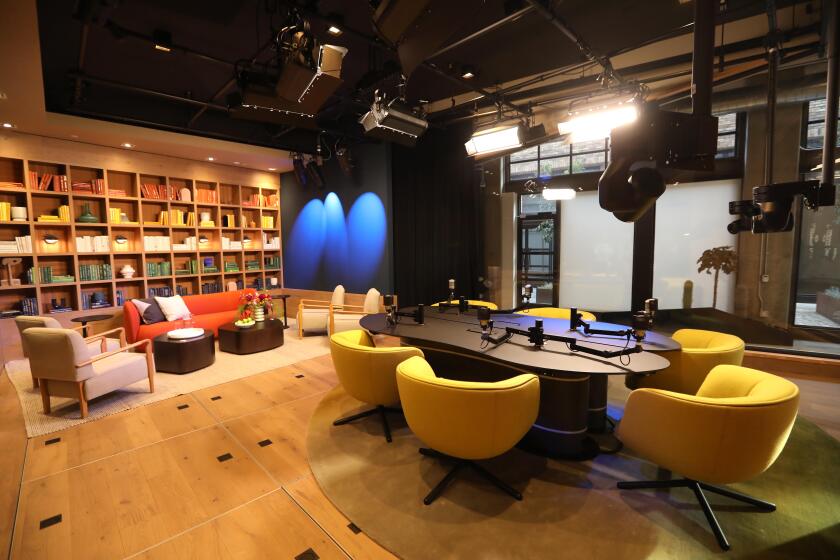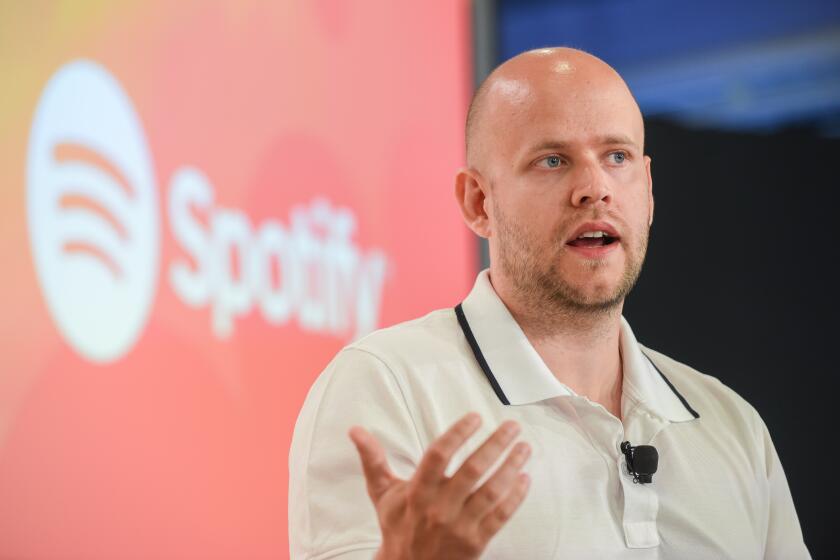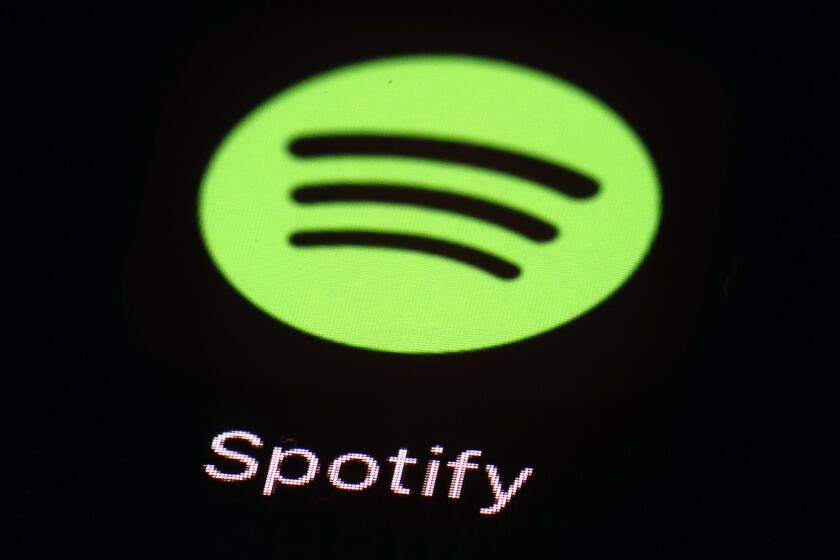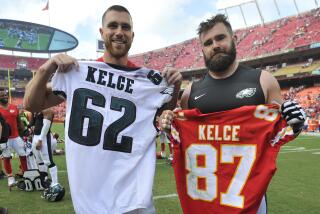With new Joe Rogan deal, Spotify’s exclusive big-name podcasting era is done
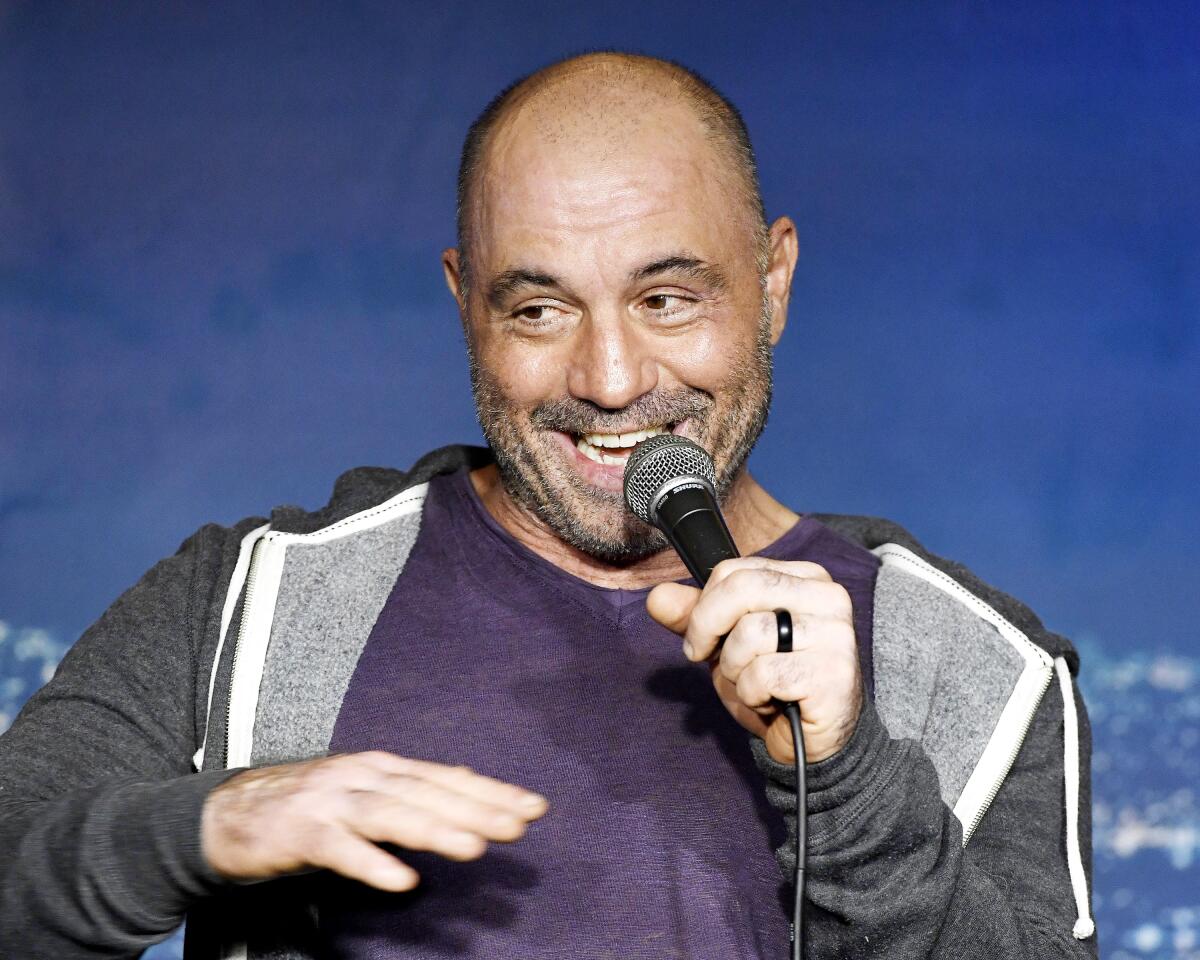
Podcaster Joe Rogan signed a new multiyear deal with audio giant Spotify that will make his popular podcast available on multiple platforms and no longer exclusive to the Swedish streaming service.
The deal, which could be worth hundreds of millions of dollars, signals a shift in Spotify’s strategy away from being the home of exclusive podcasts to becoming an audio company that structures deals based on wide distribution and ad revenue sharing.
The Wall Street Journal, which said the deal was estimated to be worth up to $250 million, was the first to report on the agreement. Spotify declined to comment on the value of the deal.
Spotify on Friday said that overall podcast consumption on its platform has risen 232% and that in turn has drawn “a wide array of advertisers” since Rogan’s podcast, “The Joe Rogan Experience,” joined its platform exclusively in 2020.
Spotify opens a downtown L.A. campus with 18 podcast studios as it expands its audio and video programming.
“JRE remains podcasting’s king, consistently ranking as the most-listened-to podcast globally and our users have ranked the show as Spotify’s Wrapped top podcast each year since 2020,” Spotify said in a blog post.
The often-controversial “Joe Rogan Experience” was the last major podcast to remain exclusive on Spotify. The company plans to distribute Rogan’s podcast widely on other platforms including YouTube, Apple and Amazon.
“I feel insanely fortunate to have such a platform, and I absolutely enjoy doing it,” Rogan said on Instagram on Friday. “I also feel insanely fortunate to be able to have so many long, in-depth conversations with so many cool, and interesting people, and it makes me happy as f— to know so many people enjoy watching and listening.”
Rogan’s podcast began in 2009 and has more than 2,200 episodes that are two to three hours in length on average, Spotify said.
The podcast ad market has grown significantly since Spotify first started making exclusive podcast deals. Back in 2020, when Spotify made its first deal with Rogan, the podcast ad revenue market in the U.S. was just $842 million, according to a report by IAB and PwC. That’s now expected to grow to about $4 billion in 2025, according to the report.
Earlier this week, another popular podcast on Spotify, “Call Her Daddy” from Alex Cooper, hatched a deal to get wide distribution at the end of January, with videos exclusive to Spotify.
“For years now, Daddy Gang has been asking to share their favorite ‘Call Her Daddy’ episodes with friends who aren’t on Spotify,” Cooper said in a statement. “I’m so excited to share the news that my show will now be widely distributed for even more fans to enjoy.”
Spotify was instrumental in bringing increased investment to the podcast industry after it purchased podcast companies Gimlet, Parcast and the Ringer. The streaming service, once known mainly for music, repositioned itself as an audio business, with podcasts being a key part.
In addition to its acquisitions, the company made deals with prominent Hollywood talent and newsmakers, including the production companies for the Obamas and Meghan Markle and Prince Harry. Some of those deals were not renewed, while others like Rogan’s podcast generated both huge popularity and controversy.
CEO Daniel Ek sent a memo to employees on Sunday, apologizing for the drama they had to endure over the controversial podcast host.
In 2022, artist Neil Young called for a boycott of Spotify after raising concerns about “The Joe Rogan Experience” spreading misinformation about COVID; other artists followed suit, calling for the removal of their music from the platform.
In response, Spotify posted its content moderation rules and said it would add content advisory labels on COVID-related podcasts. Rogan also said that he would do a better job of balancing different perspectives.
Artist India.Arie also called attention to Rogan using the N-word on the podcast. Rogan apologized for saying the racial slur on his podcast.
“I know for most people there’s no context where a white person is allowed to say that word, never mind publicly on a podcast, and I agree with that now,” Rogan said in an Instagram video. “I haven’t said it in years, but for a long time, when I would bring that word up, instead of saying ‘the N-word,’ I would just say the word.”
The podcast deals themselves also drew skepticism from the investor community, placing pressure on Spotify.
The company said it would focus more on fiscal discipline and had three rounds of layoffs last year. In December, Spotify cut 17% of its workforce.
At the end of 2022, some people in the podcast industry said companies were becoming more risk-averse in offering big guarantees but might offer a larger portion of the upside.
Spotify said it would lay off 17% of its workforce, or about 1,500 people, as the tech downturn continues.
More to Read
Inside the business of entertainment
The Wide Shot brings you news, analysis and insights on everything from streaming wars to production — and what it all means for the future.
You may occasionally receive promotional content from the Los Angeles Times.
